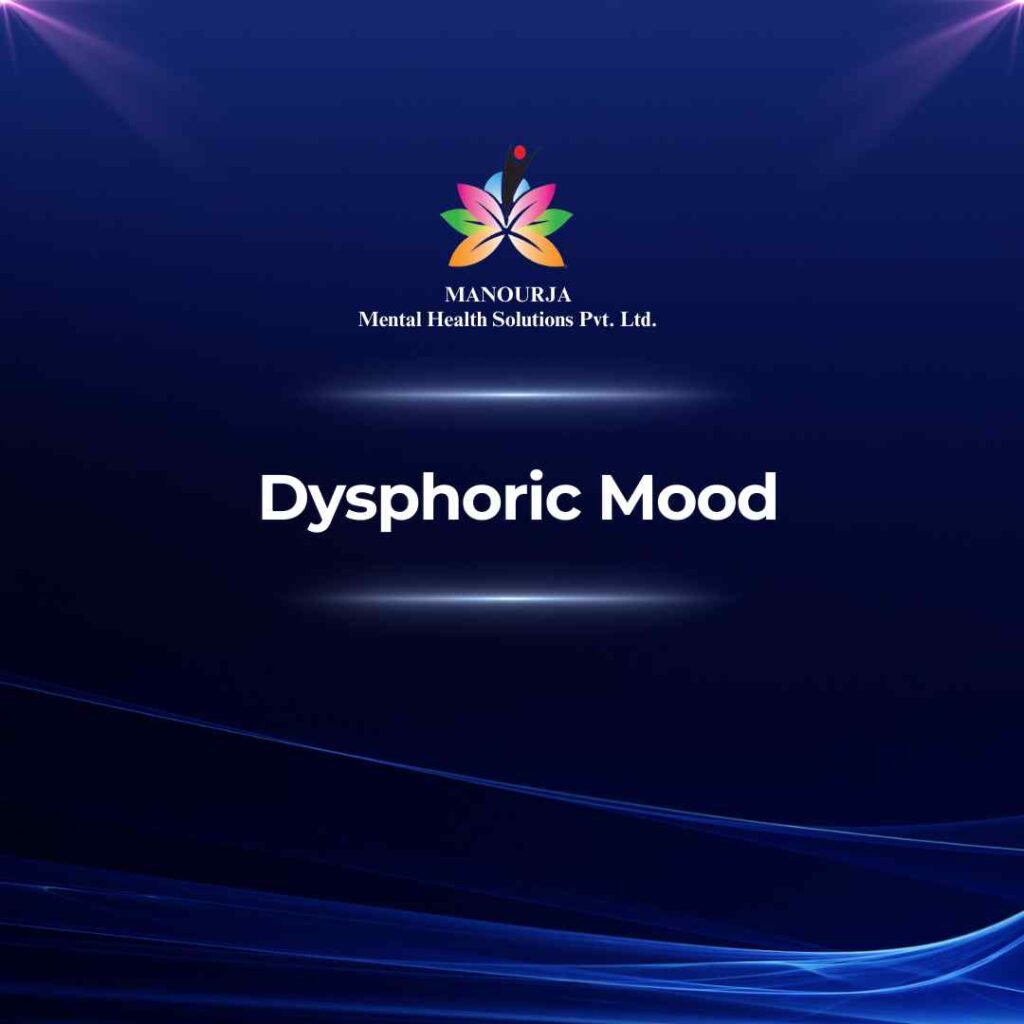Dysphoric Mood

A Dysphoric Mood refers to a state of profound unease or dissatisfaction. It is characterized by feelings of sadness, irritability, anxiety, and restlessness. Unlike transient emotional responses to specific events, a dysphoric mood is more pervasive and persistent, significantly impacting an individual’s overall emotional state and quality of life. This condition can manifest through physical symptoms like fatigue and changes in appetite, as well as cognitive symptoms such as difficulty concentrating and negative thinking.
Dysphoric Mood as a Sign and Symptom of Mental Illness
A dysphoric mood can be a primary symptom or a significant component of various mental health disorders. It often signals underlying psychological or psychiatric conditions that require attention and treatment. Individuals experiencing a dysphoric mood may display irritability, a lack of interest in activities once enjoyed, and general dissatisfaction with life.
Mental Illnesses Associated with Dysphoric Mood
Major depressive disorder is characterized by persistent feelings of sadness, hopelessness, and a dysphoric mood. Individuals with MDD often experience significant changes in sleep, appetite, energy levels, and concentration, with their dysphoric mood being a central symptom.
In bipolar disorder, particularly during depressive episodes, a dysphoric mood is common. Even during manic or hypomanic episodes, individuals may experience mixed features, where a dysphoric mood accompanies elevated or irritable mood states.
Generalized anxiety disorder involves chronic worry and anxiety about various aspects of life. This constant state of tension can lead to a dysphoric mood, marked by restlessness, irritability, and a general sense of unease.
Individuals with borderline personality disorder often experience intense and unstable emotions, including dysphoric moods. These mood swings can be triggered by interpersonal stressors and can lead to feelings of emptiness, anger, and sadness.
PTSD can result in a dysphoric mood, especially when individuals are exposed to reminders of their trauma. Symptoms include intrusive memories, heightened arousal, and negative changes in mood and cognition, contributing to a persistent state of distress.
PMDD is a severe form of premenstrual syndrome (PMS) characterized by significant mood disturbances, including dysphoric mood. Symptoms typically arise in the luteal phase of the menstrual cycle and can severely impact daily functioning.
In schizophrenia, a dysphoric mood can occur, especially during episodes of psychosis. Negative symptoms such as anhedonia (loss of pleasure) and avolition (lack of motivation) contribute to the overall dysphoric mood in affected individuals.
- Substance Use Disorders
Substance use disorders can be accompanied by a dysphoric mood, particularly during withdrawal phases. The dysphoric state may also be a result of chronic substance abuse affecting brain chemistry and emotional regulation.
Adjustment disorder occurs in response to a significant life change. A dysphoric mood is a common symptom as individuals struggle to adapt to the new situation, leading to emotional distress and impaired functioning.
Cyclothymic disorder is characterized by chronic fluctuating moods involving periods of hypomanic symptoms and periods of depressive symptoms. The depressive periods can include a dysphoric mood, though not as severe as those seen in major depressive disorder.
Conclusion
A dysphoric mood is a significant symptom that spans various mental health conditions, impacting emotional well-being and daily functioning. Recognizing and addressing this mood state is crucial for diagnosing and treating the underlying mental illnesses, helping individuals achieve better mental health and quality of life.
At MANOURJA, we believe in the transformative power of counseling. Our experienced therapists offer a safe and supportive space where you can explore your thoughts, emotions, and challenges. Through personalized counselling sessions, we’ll work together to develop coping strategies, build resilience, and achieve lasting positive change. Discover the path to a healthier, happier you with MANOURJA counselling services.
MANOURJA Rehabilitation Services
At MANOURJA, we’re dedicated to helping you in rebuild your life, after difficult times. Our rehabilitation services focus on understanding what you need to move forward, whether you’re recovering from addiction, trauma, or any psychological – social challenges. We create personalized plans, that are all about helping you, regain your strength and find hope again. With a caring team by your side, you’ll have the support to make real progress and take steps toward a brighter, healthier future.
